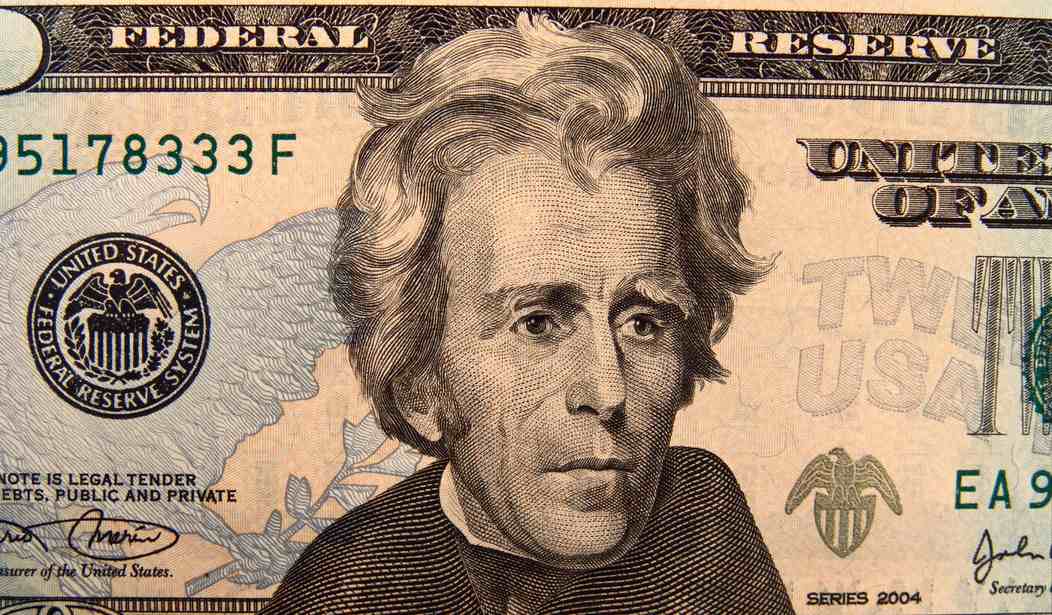President Donald Trump is the opposite of his predecessor in many ways. But perhaps the most symbolic difference comes on the Ides of March, on the 250th anniversary of the birth of America’s seventh president, Andrew Jackson. Jackson, whom Obama kicked off the $20 bill, has received a new lease on life in the White House under new management.
As CNN reported, Trump is flying south to Nashville, Tenn., to visit the Hermitage, Jackson’s home, and lay a wreath on his tomb. The president is right on time — Jackson was born on March 15, 1767, 250 years ago Wednesday. In another symbolic tribute, Trump elevated a portrait of Andrew Jackson to a place in the Oval Office — on his fifth day in office.
In true Jacksonian fashion, Trump will leave the Hermitage for a rally in Nashville’s Municipal Auditorium. The seventh president was America’s first populist head of state, and many (including Trump advisor Steve Bannon) have argued that Trump is following in his footsteps.
There are clear limits to the Trump-Jackson comparison, however. Andrew Jackson was a war hero who served brief terms in the U.S. House of Representatives, the U.S. Senate, and as a military governor of Florida. Jackson was born in relative poverty, while Trump famously entered the world in wealth, and the presidency without any experience in public service.
“The two have little in common besides the distrust they have inspired in certain elements of the political elites of their day,” University of Texas historian H.W. Brands wrote in a Politico article. “Trump’s penthouse populism is a sham; Jackson’s was the real thing.”
But it is also too easy to emphasize the differences. When Jackson lost his original presidential election (despite winning the popular vote) in 1924, he denounced the “bargain and corruption” which denied him the presidency. Trump was already attacking such a “corrupt bargain” before the election, when elites thought Hillary Clinton would defeat him. Like Jackson, he ultimately prevailed.
Also like Jackson, Trump’s foreign policy combines a reluctance to get involved overseas with the ultimate use of force to defeat America’s enemies. This “Jacksonian” ethic backed President Harry Truman’s constant bombing raids on Japan in the final months of World War II. “The Jacksonians weren’t the least bit apologetic; in their tough martial worldview, the Japanese needed killin’, and that was all there was to it,” Bannon explained in an article with Alexander Marlow.
“Jacksonians are skeptical about the United States’ policy of global engagement and liberal order building — but more from a lack of trust in the people shaping foreign policy than from a desire for a specific alternative vision,” argued Walter Russell Mead. “They oppose recent trade agreements not because they understand the details and consequences of those extremely complex agreements’ terms but because they have come to believe that the negotiators of those agreements did not necessarily have the United States’ interests at heart.”
Trump certainly does have this kind of skepticism. Like Jackson, he brings an aggressive swagger to the office, coupled with an “America First” attitude distrusting of foreign powers and American elites. Unlike Jackson, Trump firmly embraces the kind of industrialism embraced by the seventh president’s arch rival, Henry Clay. Trump is no agrarian — but America is no longer divided along those lines.
Trump is shaking up the country’s current division, however. “There is something Jacksonian both in Trump’s promise to ‘drain the swamp’ of Washington and his early moves to refill the swamp with wealthy friends, loyal supporters, and family members,” Steve Inskeep, an NPR radio host wrote in The Atlantic. Inskeep argued that Jackson “did not clear out Washington elites so much as bring a new coalition of elites to power … He also used political patronage to stuff the government with Jackson loyalists.”
Whatever language is used, the reality is clear — both Trump and Jackson swept out the old elites and replaced them with new ones. This could be described as “draining the swamp,” but unless a president actually eliminates departments and the need for government jobs, a swamp of a certain kind will persist. Trump has shown promise in cutting government, but as of yet he has done roughly what Jackson did.
Trump has also championed the “forgotten man” and this rhetoric falls squarely in line with both Jackson and President Richard Nixon.
Jackson’s legacy is not entirely positive. While the seventh president gained fame as a war hero, winning the huge battle of New Orleans in the War of 1812, he also led the removal of native Americans in the American southeast. The Trail of Tears is his legacy — and that’s why President Obama tried to kick him off the $20, despite the fact that Jackson effectively founded the Democratic Party.
In the end, America’s seventh president kept a spot on the bill — but the gun-toting Republican ex-slave Harriet Tubman kicked him to the back. Poetic justice.
It is also poetic justice that a president much in the line of Andrew Jackson took office just in time to celebrate the seventh president’s 250th birthday — right after the last president demoted him.









Join the conversation as a VIP Member